By: Moehammad Amar Ma’ruf, A Career Diplomat at the Ministry of Foreign Affairs of the Republic of Indonesia
Indonesia is one of the countries that active in international for whether in the UN auspices or in non UN fora such as Organization of Islamic Cooperation/OIC, G 77, D-8, G-20, APEC etc. Key message of this participation is to play active role in making peace and prosperous world.
Indonesian and the world have just witnessed the quite successful international event that being hosted by Indonesia during the Presidency of Indonesia in Group of 20 this year and the next year (in 2023) Indonesia again will take a responsible of becoming the ASEAN Chairmanship that not less important comparing with other international fora meetings. Again, Indonesia commits in contributing its capacity to the world societies regionally and internationally through facilitating dialog into mutual respect and beneficial cooperation.
Many peoples in Indonesia may not be aware of the reason why Indonesia should play an active role in the international interaction. Morever, the world situation now sees more delicate due to the unprecedented threats such as pandemic Covid 19 and the war between Ukraine and Russia.
Also Read: The Forty-Four-Days of Glory: Azerbaijan’s Struggle for Justice and Peace
These above two issues have caused grave impact to the world situation in all aspect of life. In the field of humanity, it causes many victims, in the economic sector, it arises inflation to each national spending and contribute to slower growth, and in the political aspects, it may arise the Blocks due to the distrust between alliance and non-alliance toward the co-existing principal among nations. As a result of scarring caused by COVID-19, poverty estimation by 2030, 588 million people could still live in extreme poverty, an additional 50 million people compared with pre-COVID-19 estimates (Brooking Sustainable Report).
The world population in 2021 has reached around 7.837 billion lives. This number unavoidably needs support in many aspects, basic/primary needs and even in secondary needs. These aspects need support from technical fields ranges from the needs since the period of birth until need in the period of death.
Today, there are still many parts of the world facing famine due to extreme poverty. Meanwhile, this issue also found in the big cities in the world, there are still many peoples in the city homeless and living in poverty. Many social and economists say that this is still happened due to the unfair spreading of development opportunities and gap of income and other artificial malfunction in controlling social life.
The above issues become more complex when the natural disasters becoming more frequent happened due to the effect of climate changes. Meanwhile, the logistic and infrastructure are getting encroached by unfriendly development activities that harm humanity and social and economic aspects of the peoples.
Also Read: Palestine Solidarity Month: A Collective Movement for Al-Aqsa and Palestine’s Freedom
That is the face of the 21st century that should be managed properly and wisely by the leaders of the world to bring their people in their respective countries and to the people of the world out from poverty and difficulties. This is not easy tasks for all element which now getting uneasy to observe their basic capacity without opening and sharing the opportunities and challenges to be addressed.
The most possible means to be explored in minimizing the gap of using the existing opportunities and overcome challenges to utilize all resources in the country to manage challenges and overcome the threats to human lives by managing the asset of respected capacities of the countries by sharing a good model of development to each other’s.
Evaluating the international for commitment and resolution that may always be a guidance or direction for human lives in next centuries such as the Climate Change and Sustainable Development Goals, the stakeholders in the respective nationals of the world must have a active role in managing global issues to get core problem comprehensively and inclusively. One of the most challenging issues related to international commitment is how to make International Cooperation resolution and commitment be implemented inclusively not exclusively and good for one-sided.
It is quite encouraging to know that the Indonesian has a good experience in international development cooperation. One of that is to support other countries national development through South-South Technical Cooperation (SSTC). The essence of this SSTC is to share best practices on International development cooperation program between the South-South. This method is inherited Bandung Declaration resulted from the Asian African Conference in 1955 in Bandung. The SSTC gives room for other technical institution from government and private scope to make collaborative action to assist other countries in doing their national development.
Also Read: Hassan al-Turabi: A Controversial Thinker from Sudan
During the discussion on International Seminar of Enabling the Inclusive Development Program held in Bali 16 November 2022 organized by the Islamic Development Bank (IsDB) and Bappenas RI and brought many panelists, there is a need to strengthen technical cooperation by establishing Funding institution to save their program of development. This is realistic measures. It will bridge the gap between the developing or even less developing with the technology and resources countries/donor countries with the existing Development Banks.
In Indonesia, in 2019 the government has established the Indonesia AID to strengthen the Indonesian commitment in accompanying the South-South Cooperation that become popular among the South countries. This establishment should not be looked as single institution in gearing up soft diplomacy in pursuing international commitment for a more balancing global order. This institution is partner to optimize contribution and minimize the gap.
It is admitted that the objective of minimizing the gap becoming more channeling since Indonesia under its Presidency of G20 has succeeded bringing G20 leaders to think sustainably toward three main agendas as the key issues for current and future generations. The leaders have agreed on managing health issues inclusively, literate public with digital transformation and prepare to transition to the sustainable energy. On this agendas the leaders also agree to create source of Pandemic Fund which is now amounted almost US $ 1,5 billion and Resilience and Sustainability Trust around US $ 81,6 billion, and commitment of the G20 leaders to protect 30 % of World Ocean and the Land, and reduce land degradation until 50 % in 2040 voluntarily.
The above commitment made Indonesia and other G20 leaders, including all related stakeholders should work together with their best capacity and strengthen coordination and collaboration through partnership with all element in national and international level to get better situation and comprehensive solution toward the global problem. Through partnership let us make success of No One Left Behind sustainable development agenda. (AK/RE1)
Also Read: Who Exactly is the RSF Group Shaking Sudan?
Mi’raj News Agency (MINA)






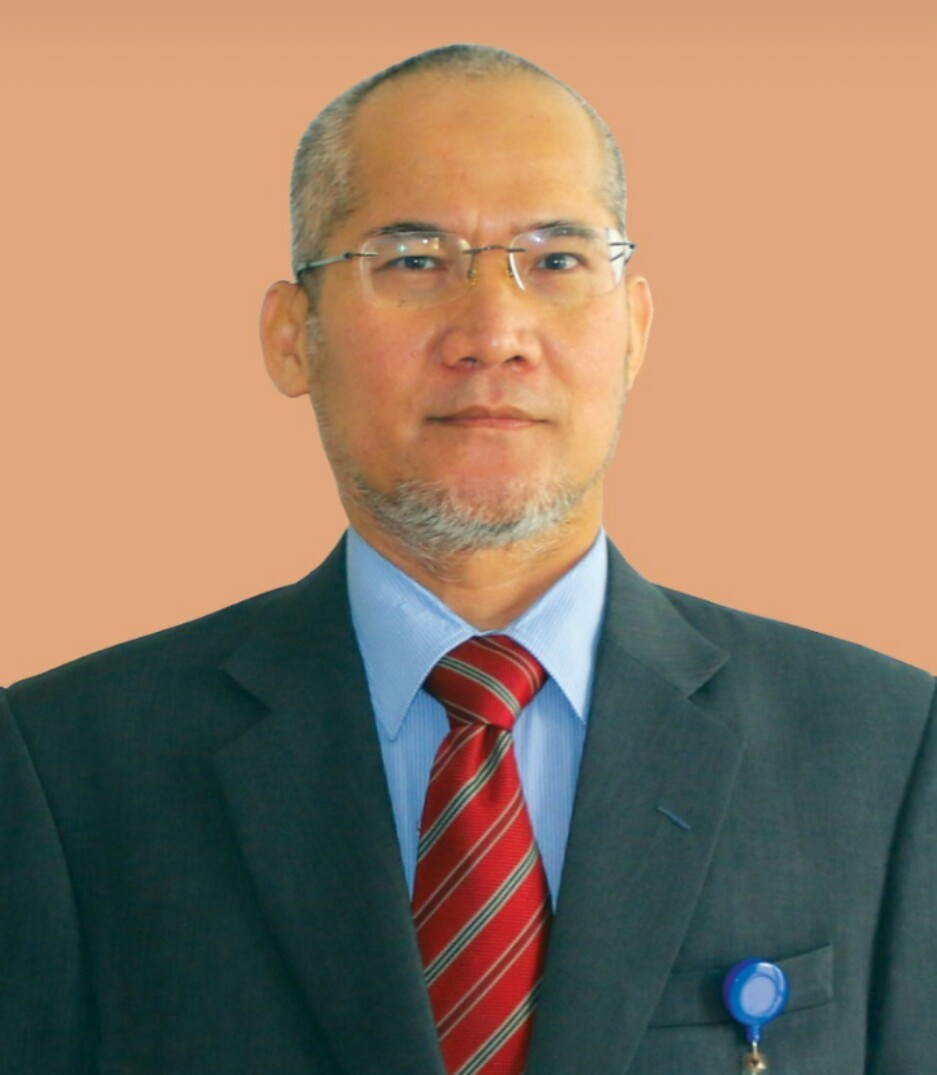




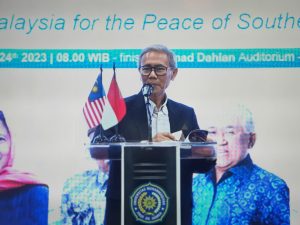
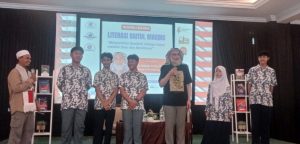
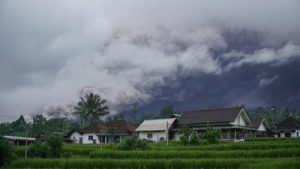
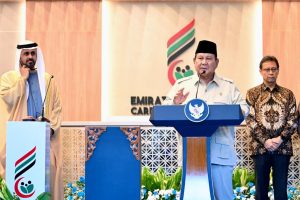

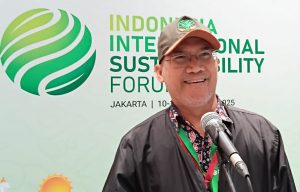
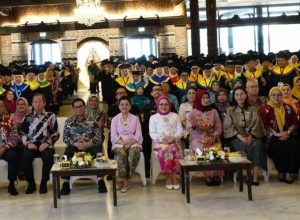


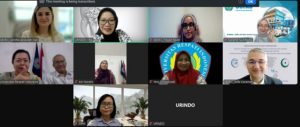
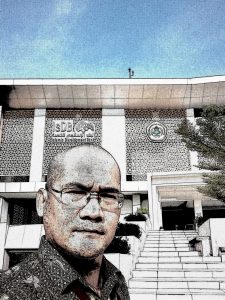













 Mina Indonesia
Mina Indonesia Mina Arabic
Mina Arabic